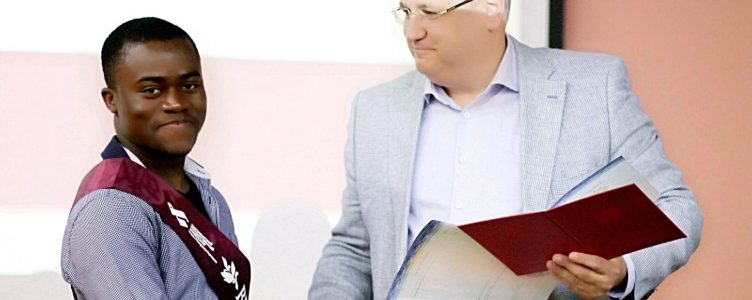Foreigners from near and far abroad have been studying at Pitirim Sorokin Syktyvkar State University for more than five years. This year’s list of graduates included Master Degree Graduate Oyeranmi Samson Gbolahan from Nigeria, who graduated from the university graduated from the university with honours in Project Management. Samson spoke about his life in Russia and studying at two universities to a Verbum correspondent.
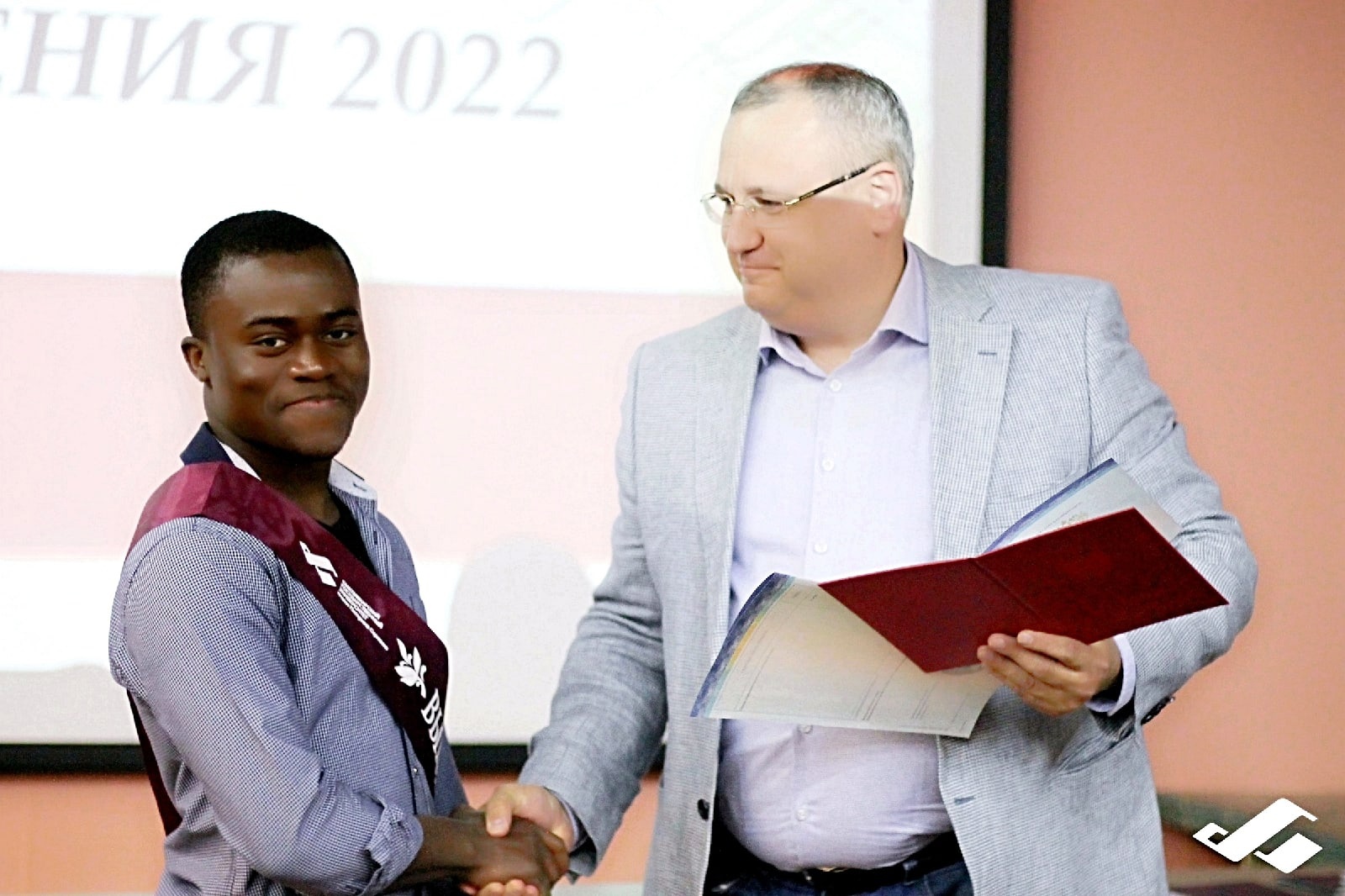
– Are you happy to get your master’s degree?
– Yes, I’m very happy. Studying for a bachelor’s and master’s degree in Russia is a good stage in life. I graduated from the university with honours, so I can say that it was a successful education, thanks to the University teachers, my supervisor, Arif Shikhverdiev, the head of the department. I also want to thank the entire management department and our institute, Maria from the directorate and all the employees of Syktyvkar State University international department. They work well and are very helpful.
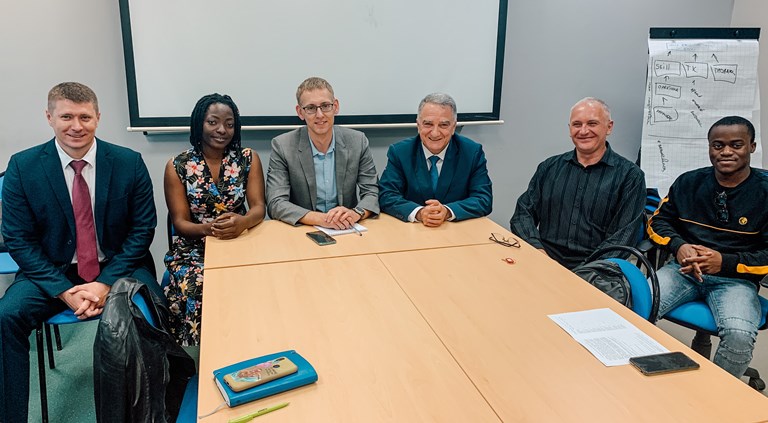
– What was your study like in Russia?
– It was scary and difficult, because I was getting my bachelor’s degree in Russian. Every time I had to translate unfamiliar words. But I studied well. Education in Russia is of high quality. I recommend applying to Russian universities.
– What did you especially like about Russian education?
– Russian education is very good, especially in the field of medicine, management and some other specialties. As a bachelor, I studied engineering at Ukhta State University. Unfortunately, foreign students were not allowed to practise in large companies such as Lukoil, Gazprom and Neftegaz, so it turned out that this area of education is ineffective for foreign students. I received a good education and practice mastering my Master’s Degree, as we were allowed to have practical training at enterprises.
– What subject was the most interesting?
– I liked all the subjects because I am interested in projects. All course subjects were interesting.
– What subject was the most difficult?
– All subjects were difficult, as I had to study and translate. The exams were also difficult. But the teachers were always ready to help us.
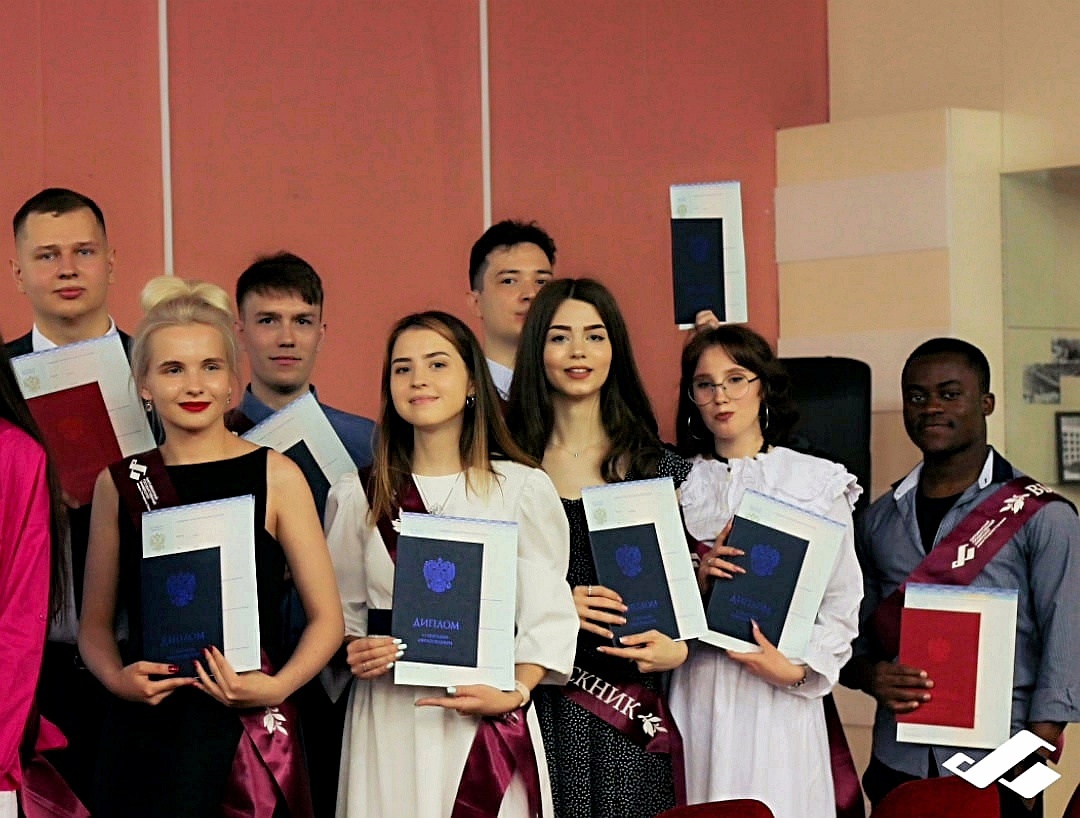
– What do you plan to be, where to work? And most importantly, in which country?
– I can work in any country because I am an international person. I will work as a specialist in Project Management because I like it and I’m good at creating projects. Six months after entering my master’s program, I started writing one of my best projects. It became the subject of my thesis. I already help different organizations, so I will definitely work in this sphere.
– Have you thought in what country you will stay?
– I’m leaving Russia, I can’t say anything more specific.
– Why are you leaving?
– It’s not easy for me to build a career here. It is difficult to find a well-paid job in Russia, especially for foreigners. I also have a lot of expenses. I think I need a salary of 60,000 rubles to support myself. Therefore, I will leave and I need to do this before the end of August, since the visa is expiring.
– Does leaving upset you?
– Of course, I’m upset. I’ve lived in Russia for seven years and never left. I’m already half Russian. Of course, it’s sad to leave forever, but I have to return home, because my family and my homeland are there. But despite this, there will always be a connection between me and Russia.
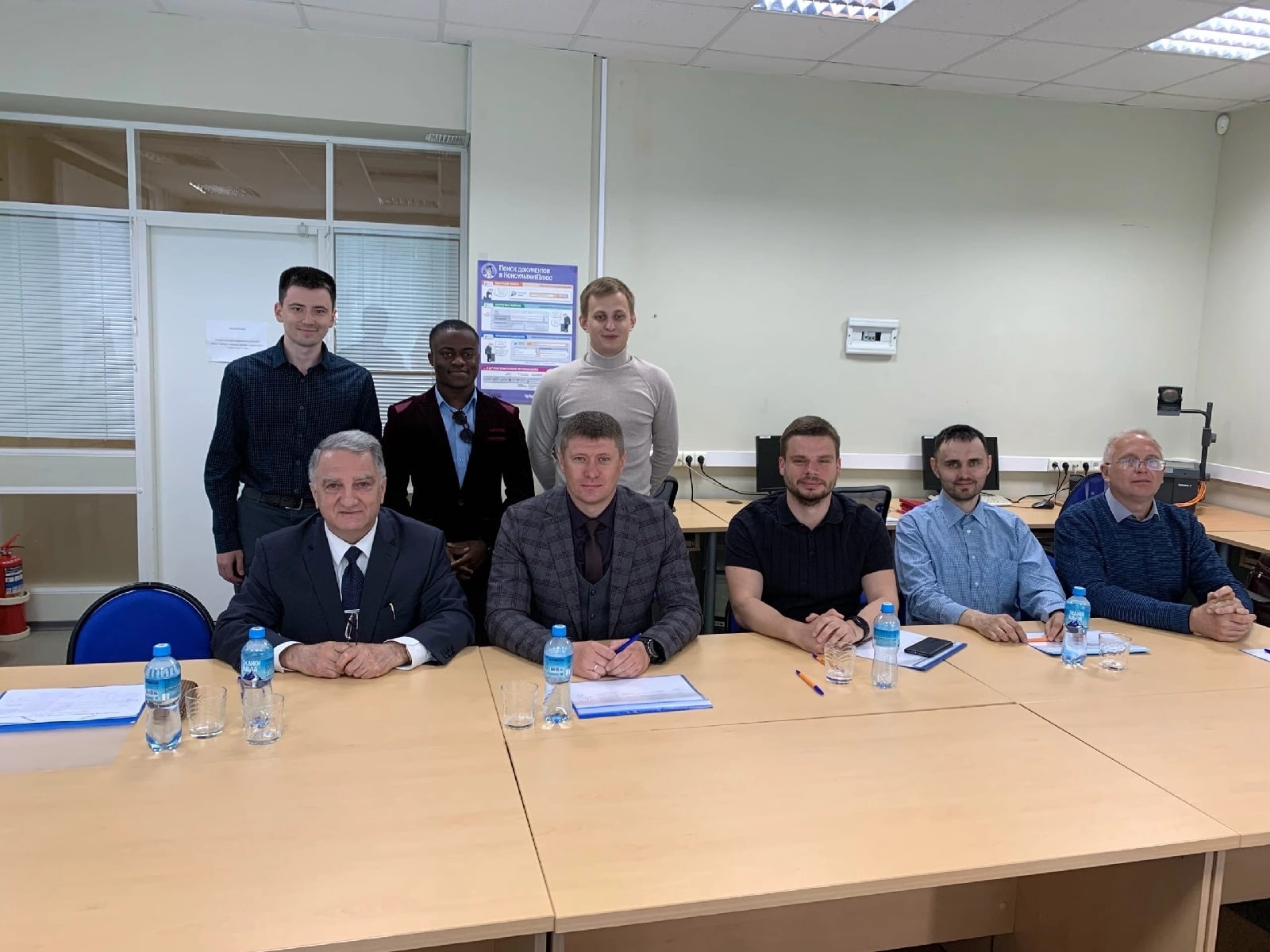
– What are your plans for the summer?
– I don’t have any special plans for the summer. I think, to do business, take a little walk and have barbecue (‘шашлык’).
– Do you appreciate the Russian barbecue? (‘шашлык’)
– Yes, I really like this dish. You Russians have delicious barbecue.
– What will you remember about Syktyvkar?
– Syktyvkar is a very good, quiet and safe city. I like the life rhythm in this city. I’ve made friends, I’ve found a church, and I cannot live without faith. It is a big part of my life. I have no bad memories of Syktyvkar.
– With whom have you made friends in our city? How do you plan to keep in touch?
– I’ve made many friends at the university and in the church. I have them on social networks, they also have my phone number.
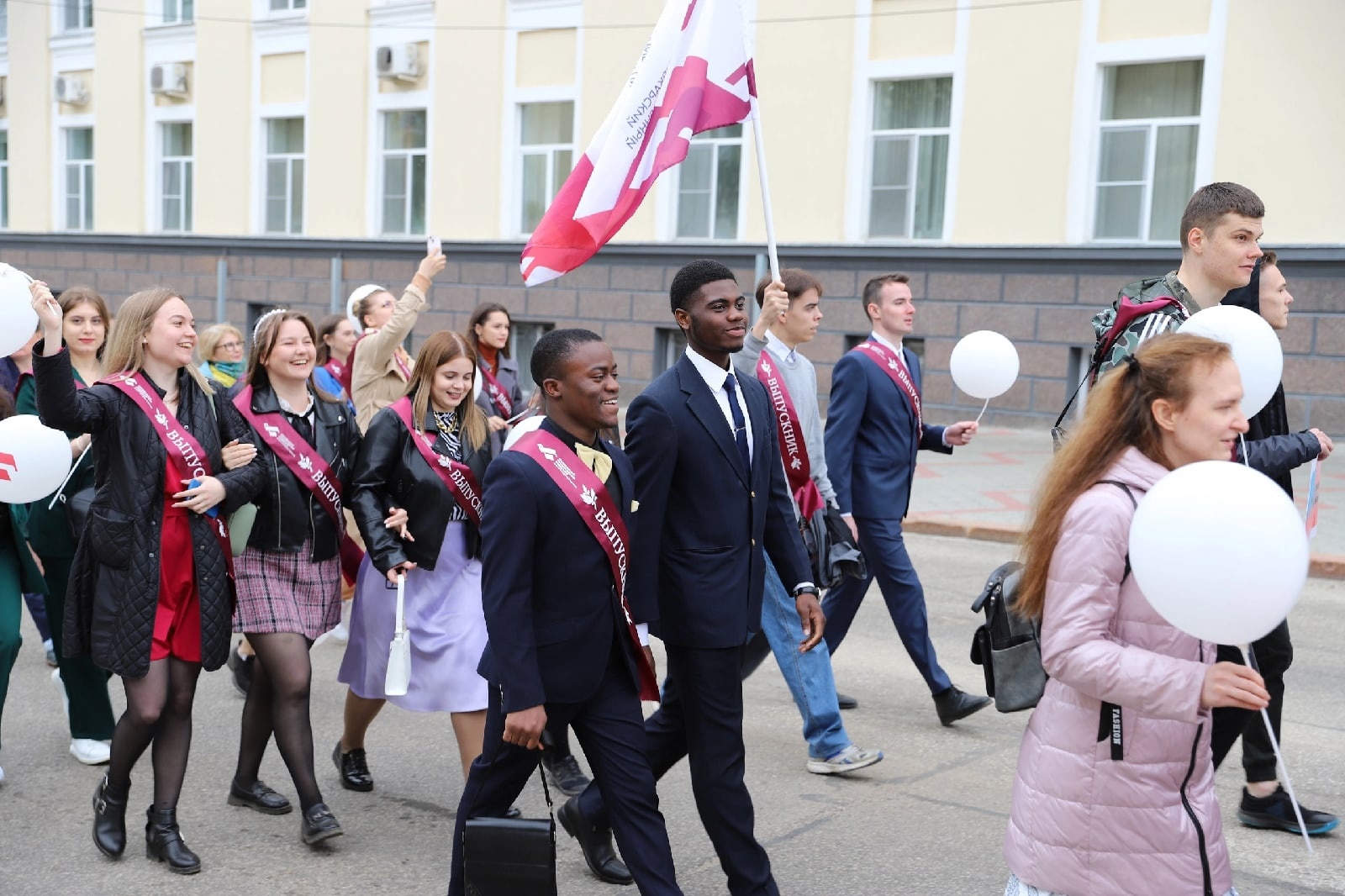
– And a little more about studying. Was it hard to get a diploma with honours?
– I’ve learned a lot, overcame difficulties. But it was easier for me to study than other foreign students, since I studied in Russian at the Bachelor’s programme. Sometimes I turned in some assignments earlier. Teachers even told me not to hurry. But why not, if there is a desire and understanding? But getting a diploma with honours is difficult.
– But it was worth it?
– Oh sure. This is a big success. I thank the Lord for knowledge and patience. My family was also very happy when they found out that I would get a diploma with honours.

